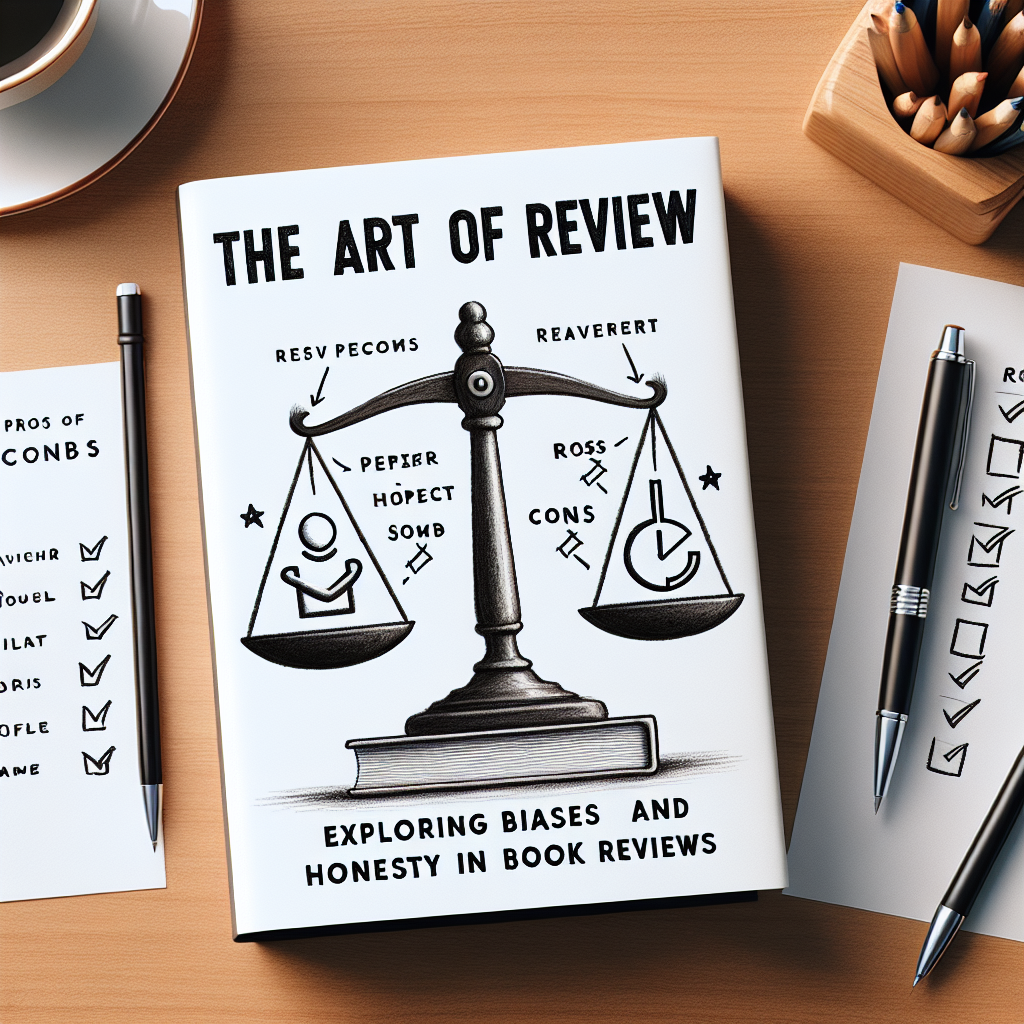Are you wondering if it’s appropriate to turn to your friends and family for book reviews? You’re not alone. Many authors find themselves grappling with this question as they seek honest and constructive feedback on their literary works. The thought of reaching out to loved ones for reviews may seem like an easy solution, but it does come with its own set of considerations. In this article, we’ll explore the pros and cons of involving friends and family in the review process, helping you make an informed decision that aligns with your goals as an author. Let’s explore the ins and outs of this intriguing topic.

Benefits of asking friends and family to review my book
1. Genuine support
Asking friends and family to review your book can provide invaluable support and encouragement during the daunting process of publishing. These individuals already know and care about you, which means they are more likely to genuinely support your writing journey. Their positive feedback can boost your confidence and motivate you to continue pursuing your passion for writing.
2. Honest feedback
While friends and family may provide biased support, they can also offer honest feedback on your book. They are familiar with your writing style, strengths, and weaknesses, and can provide insightful critiques that help you improve your craft. Their honesty can be refreshing and constructive, as they have your best interests at heart and genuinely want to see you excel as a writer.
3. Cost-effective
Hiring professional reviewers or editors can be costly, especially for independent authors or those on a tight budget. Asking friends and family to review your book is a cost-effective alternative. These individuals are often willing to provide their time and feedback without financial compensation, making it an affordable option for obtaining valuable input on your work.
4. Wider reach
Friends and family members have their own networks of acquaintances, colleagues, and social connections. By asking them to review your book, you have the opportunity to tap into their circles and gain exposure to a wider audience. Positive reviews from people close to you can pique the interest of others who may be interested in reading your book, potentially boosting sales and increasing your readership.
Considerations before asking friends and family to review my book
1. Bias and subjectivity
It’s important to acknowledge that friends and family may have inherent bias when reviewing your book due to their personal relationship with you. This bias can influence their perception and potentially result in overly positive or overly critical feedback. Recognizing this bias can help you approach their reviews with a balanced perspective and take their opinions into account while also seeking input from more objective sources.
2. Expertise and qualifications
When asking friends and family to review your book, consider their expertise and qualifications in the relevant field. While they may possess a genuine interest and enthusiasm for your work, their lack of experience or knowledge in the literary industry might limit their ability to provide in-depth feedback. It’s important to balance their feedback with insights from professionals and individuals well-versed in the craft of writing.
3. Potential strain on relationships
It’s crucial to be mindful of the potential strain that asking friends and family to review your book can have on your relationships. Reviews, especially if they contain constructive criticism, have the potential to cause conflicts or hurt feelings. Be prepared for varying opinions and reactions, and maintain open lines of communication with your loved ones to address any concerns or misunderstandings that may arise.
Approaching friends and family for book reviews
1. Identifying potential reviewers
Before reaching out to friends and family for reviews, take some time to identify those who would be interested and willing to provide valuable feedback. Consider individuals with similar interests, who enjoy reading the genre of your book, or who have expressed enthusiasm for your writing in the past. This way, you can select reviewers who are genuinely interested in your work and more likely to provide insightful comments.
2. Setting expectations
When approaching friends and family for book reviews, it’s essential to set clear expectations from the beginning. Communicate your intentions, explain the purpose of the review, and outline what you hope to achieve from their feedback. Be honest about the stage of your writing process and any specific areas you would like them to focus on. This transparency will help manage their expectations and ensure the reviews are beneficial for both parties.
3. Providing a synopsis or summary
To give your friends and family reviewers a better understanding of your book, provide them with a synopsis or summary. This will help them contextualize their reading and provide more meaningful feedback. Include key plot points, themes, and characters to guide them through the story and enable them to offer targeted insights. The more information you provide, the better equipped they will be to provide valuable commentary.
Requesting honest feedback
1. Emphasize the importance of honesty
When requesting reviews from friends and family, emphasize the importance of their honesty. Let them know that you value their candid feedback above all else and that their input will help you grow as a writer. By emphasizing the significance of their honesty, you create a safe space for them to share their genuine opinions without fear of hurting your feelings.
2. Specify the type of feedback desired
To receive the most helpful feedback from friends and family reviewers, be specific about the type of input you are looking for. Are you primarily interested in their thoughts on character development, plot structure, or writing style? Clearly communicate the areas in which you are seeking their insights, as this will guide their reading and subsequent feedback, allowing you to focus on specific aspects of your book.
3. Encourage constructive criticism
In addition to emphasizing the importance of honesty, encourage your reviewers to provide constructive criticism. Constructive feedback focuses on identifying areas for improvement while also offering suggestions for how to enhance those aspects. Encouraging this type of feedback helps you gather valuable insights that can contribute to the growth and refinement of your writing skills. Remember, constructive criticism is not an attack on you as a writer but an opportunity for growth.

Ensuring impartiality in reviews
1. Ensuring no obligation to leave positive reviews
To maintain the integrity of the reviewing process, make it clear to your friends and family that they are under no obligation to leave positive reviews solely based on their personal relationship with you. Stress the importance of their unbiased feedback, regardless of their connection to you. This approach ensures that the reviews you receive are genuine and can be trusted by potential readers.
2. Suggesting alternative reviewers
While friends and family reviews can be valuable, it’s also essential to gather feedback from a diverse range of perspectives. Consider suggesting alternative reviewers outside your immediate social circle who may provide objective feedback. These could include writing groups, beta readers, or online communities tailored to authors. Seeking input from various sources helps you gain a well-rounded understanding of your book’s strengths and areas for improvement.
3. Seeking a diverse range of opinions
In addition to suggesting alternative reviewers, strive to gather feedback from individuals with diverse backgrounds and experiences. Engage readers who may not typically be part of your personal network to obtain insights from different perspectives. This diversity of opinions can offer valuable insights that help you identify any potential gaps or areas of improvement in your book, ultimately making it more relatable and engaging to a wider audience.
Navigating potential challenges
1. Dealing with negative feedback
Receiving negative feedback can be challenging, especially when it comes from friends and family. Remember to approach any criticism with an open mind and view it as an opportunity for growth. Separate constructive criticism from personal attacks and consider the intentions behind their feedback. Respond with gratitude for their honesty and use their comments as a catalyst for improvement in your future writing endeavors.
2. Addressing conflicts of interest
Occasionally, conflicts of interest may arise when asking friends and family for book reviews. These conflicts may stem from personal biases or conflicting agendas. If you believe a review may be compromised due to such conflicts, it’s essential to address the situation openly and honestly. Encourage your loved ones to provide unbiased feedback and remind them of the ultimate goal: to improve your writing.
3. Managing confidentiality
Asking friends and family to review your book may involve sharing unpublished work that you would like to keep confidential until publication. Ensure that your reviewers understand the importance of maintaining the confidentiality of your manuscript and any sensitive information within it. Trust and open communication are key to safeguarding your work until you are ready to share it with the world.
Avoiding over-reliance on friends and family
1. Seeking additional professional reviews
While friends and family reviews are valuable, it’s crucial not to solely rely on them for feedback. Consider seeking professional reviews from established reviewers, literary critics, or trusted professionals within the publishing industry. These individuals bring a wealth of expertise and can offer objective opinions that may differ from those of your loved ones. Incorporating a variety of perspectives enhances the overall quality of your book.
2. Exploring alternatives like beta readers
In addition to professional reviews, explore the option of engaging beta readers. Beta readers are individuals who provide feedback on your manuscript before it is published. They can offer fresh perspectives and identify areas of improvement or potential issues that may have been overlooked. Beta readers are often passionate readers who are experienced in evaluating unpublished work and can provide valuable insights to enhance your book.
3. Utilizing online review platforms
Online review platforms offer another avenue for acquiring feedback while expanding your book’s reach. Encourage your friends and family to leave reviews on popular platforms like Goodreads, Amazon, or other websites dedicated to book reviews. This allows you to gather a broader range of opinions and reach potential readers who rely on these platforms when making their book purchasing decisions.
As an aspiring author, asking friends and family to review your book can provide numerous benefits, including genuine support, honest feedback, cost-effectiveness, and a wider reach. However, it is essential to consider potential biases, expertise levels, and the potential strain on relationships. By approaching your loved ones with clear expectations, requesting honest feedback, ensuring impartiality in reviews, and navigating potential challenges, you can leverage their support while also seeking input from a variety of sources. Avoid over-reliance on friends and family by seeking additional professional reviews, exploring alternatives like beta readers, and utilizing online review platforms. With a well-rounded approach to gathering feedback, you can enhance your writing skills, refine your book, and ultimately increase its chances of success.
Comments are closed